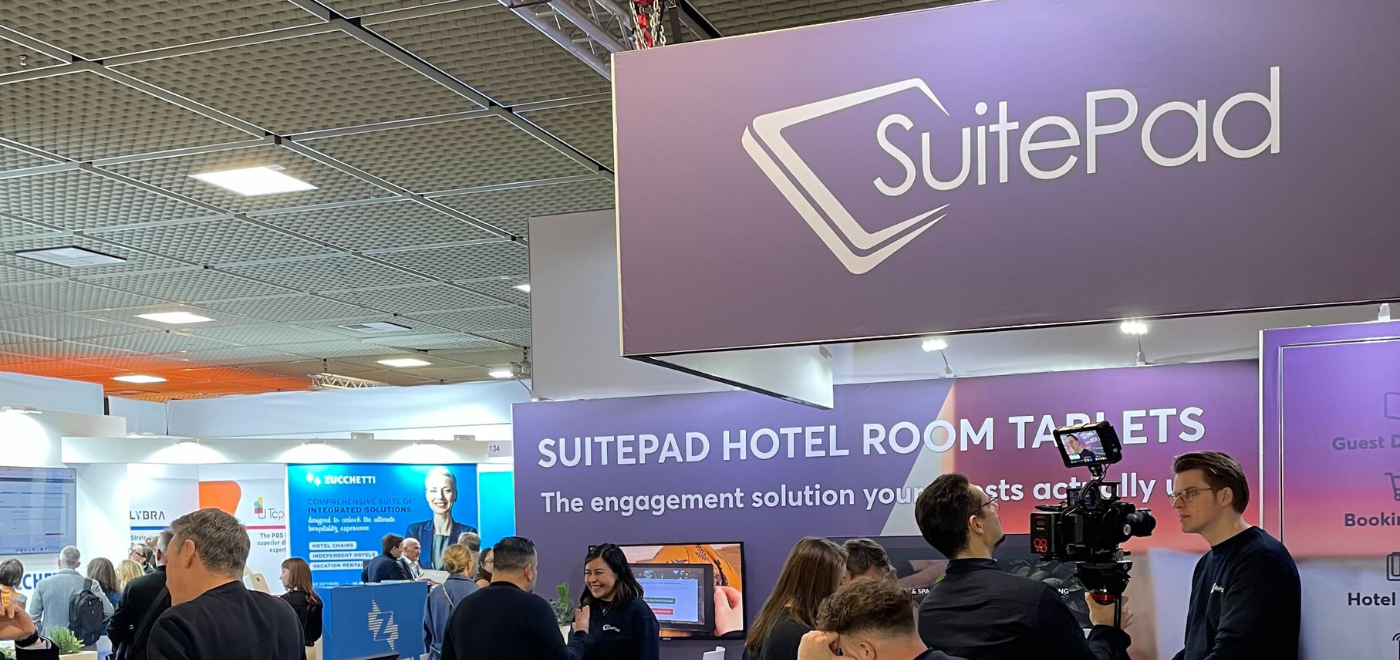![]() Magdalena Rungaldier's boutique hotel consultancy created a framework to help hotels become more sustainable. Here, she discusses her comprehensive approach and offers tips for hoteliers.
Magdalena Rungaldier's boutique hotel consultancy created a framework to help hotels become more sustainable. Here, she discusses her comprehensive approach and offers tips for hoteliers.
 Magdalena Rungaldier is the principal of MAp Boutique Consultancy, a multi-faceted boutique hotel consultancy and certified B Corporation specialized in creating sustainable hotel concepts, hotel brands and marketing strategies that elevate award-winning clients around the globe.
Magdalena Rungaldier is the principal of MAp Boutique Consultancy, a multi-faceted boutique hotel consultancy and certified B Corporation specialized in creating sustainable hotel concepts, hotel brands and marketing strategies that elevate award-winning clients around the globe.
You developed a framework to guide hotels towards a more sustainable path. What are the essential components?
Sustainability is a lot more than just about being green. For your hotel to be a truly sustainable hotel, you need to take a holistic approach to sustainability, addressing its three core pillars: environmental, social and economic.
Our framework for sustainability, titled the 4 Ps of sustainability, covers these three pillars – Planet (environmental), People (social) and Profit (economic) – and includes one last P, Purpose, which is the heart of your sustainable hotel.
Here’s an overview of what each P entails:
- Planet: The impact your hotel has on the planet, ensuring that you protect the world's ecosystems and conserve natural resources for the health and wellbeing of all - now and in the future.
- People:The impact your hotel has on people, including your guests, employees, partners and local community members. At the cornerstone of social sustainability is protecting human rights, addressing issues that affect your people, and uplifting and empowering them.
- Profit: The impact your hotel has on economic growth, without negatively impacting the social and environmental aspects of the community – while driving profitability for your hotel.
- Purpose: While it’s not officially one of the pillars of sustainability, purpose stands at the core of MAp’s sustainability framework. The definition is simple: Purpose is the WHY that drives you to do what you do – and love it!
On The Sustainable Hotel, we have practical handbooks (and other tools) dedicated to each P, which are packed with insights, recommendations, exercises, tools, resources, case studies and more, and aligned with the top hotel sustainability certifications out there. That means by completing the handbooks and implementing the action steps therein, your hotel is able to certify as a (holistic) sustainable hotel.
What first steps can hotels take when starting their sustainability efforts? How does a hotelier go about identifying areas for improvement?
 We recommend starting with your Purpose. What’s the Purpose of your hotel, which drives your sustainability journey? Being clear on what that is gives you clarity as to what sustainability priorities you focus on; it acts as your guiding compass on the sustainability journey.
We recommend starting with your Purpose. What’s the Purpose of your hotel, which drives your sustainability journey? Being clear on what that is gives you clarity as to what sustainability priorities you focus on; it acts as your guiding compass on the sustainability journey.
We know it’s very difficult to answer the question “What’s your Purpose?” on the spot. Often, it helps to look at it from another direction, and so in our consultancy practice, we like to turn the question around: If you do not know what you stand for, can you tell us what you stand against? That could be a challenge, a grievance, an issue, or a topic that occupies you.
Once you identify what that is, it helps you to hone in on your hotel’s Purpose. And once that has been identified, you can decide which P or Ps you focus on as part of your sustainability strategy.
As far as looking for areas of improvements goes, utilize benchmarking as a way to evaluate your performance and identify areas where there is room for improvement. For example, on the topic of energy, look at your energy bills and see how much was consumed, per energy source, over the last 12-18 months. What do you notice – is there a part of your hotel that consumes considerable more energy? Which part of your hotel is the most high-performing when it comes to energy – and is there a practice you can replicate elsewhere? From there, the path forward should be clearer.
In your opinion, in what way can digitalization and hotel tech contribute to creating change?
Digitalization plays a major role in sustainability, and in our perspective, hotel tech in particular is important for advancing levels of efficiency. There’s so much waste produced in hotels – be it food waste, energy waste, water waste, etc. - and the reality is that every bit of waste equates to inefficiently-used resources. With hotel technology, you can see where inefficiency is happening and make better informed decisions regarding your operations to create a bigger impact. And as a bonus, you realize significant cost savings through those increased efficiencies as a result (that’s right – sustainability is good for business too!).
Finally, how do you think the hotel industry can work together to drive progress on sustainability issues?
It’s time for collective action in the hotel industry! We believe the key to that is for hotels and other businesses to share their best practices, practical guidance, helpful resources and actionable tools with each other in order to drive this collective action further. With our platform, The Sustainable Hotel, we are doing our part.
Of course, we are always looking to support and uplift other businesses in the hotel industry that share our same values and seek to do good for people and planet. Please do get in touch if you wish to partner and make a bigger impact together!
Webinar: Sustainable Hotel Management – The Top Trends in 2023
Are you interested to hear more about this topic? In this exclusive webinar co-hosted by MAp Boutique Consultancy and SuitePad, you will learn about a more holistic approach to sustainable hotel practices that you can implement in 2023. It will take place at 3:00 pm CET (2:00 pm GMT) on Wednesday, 25th of January, 2023.
📸 Copyright: MA people GmbH *MAp*
Published on January 6, 2023







